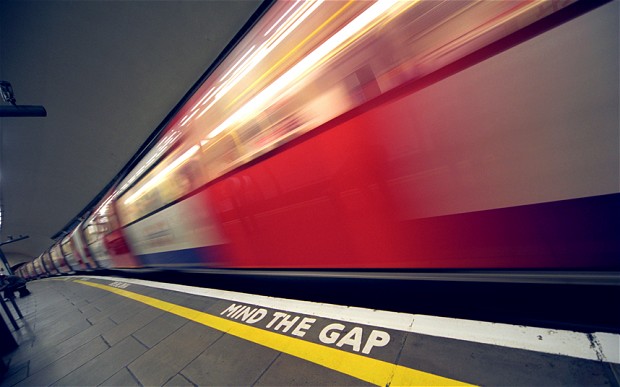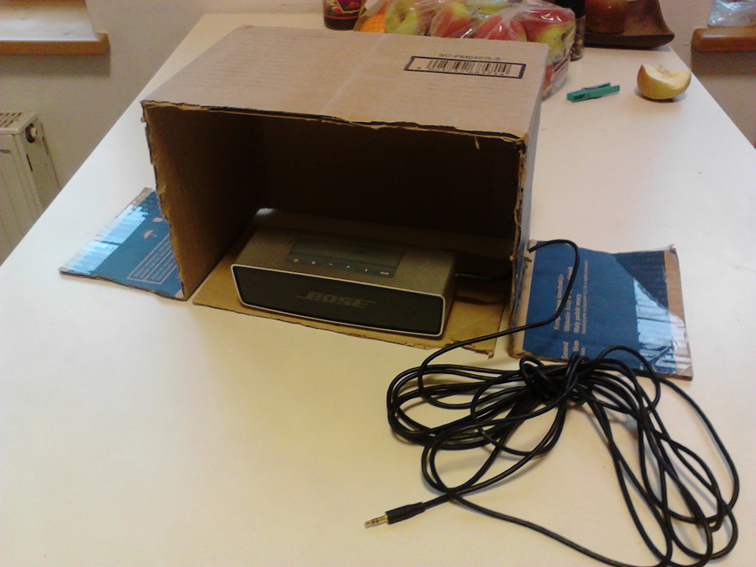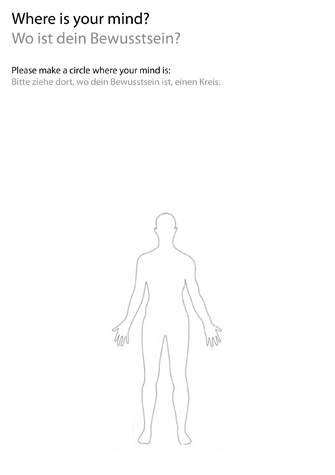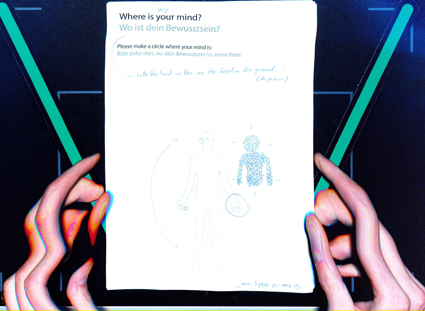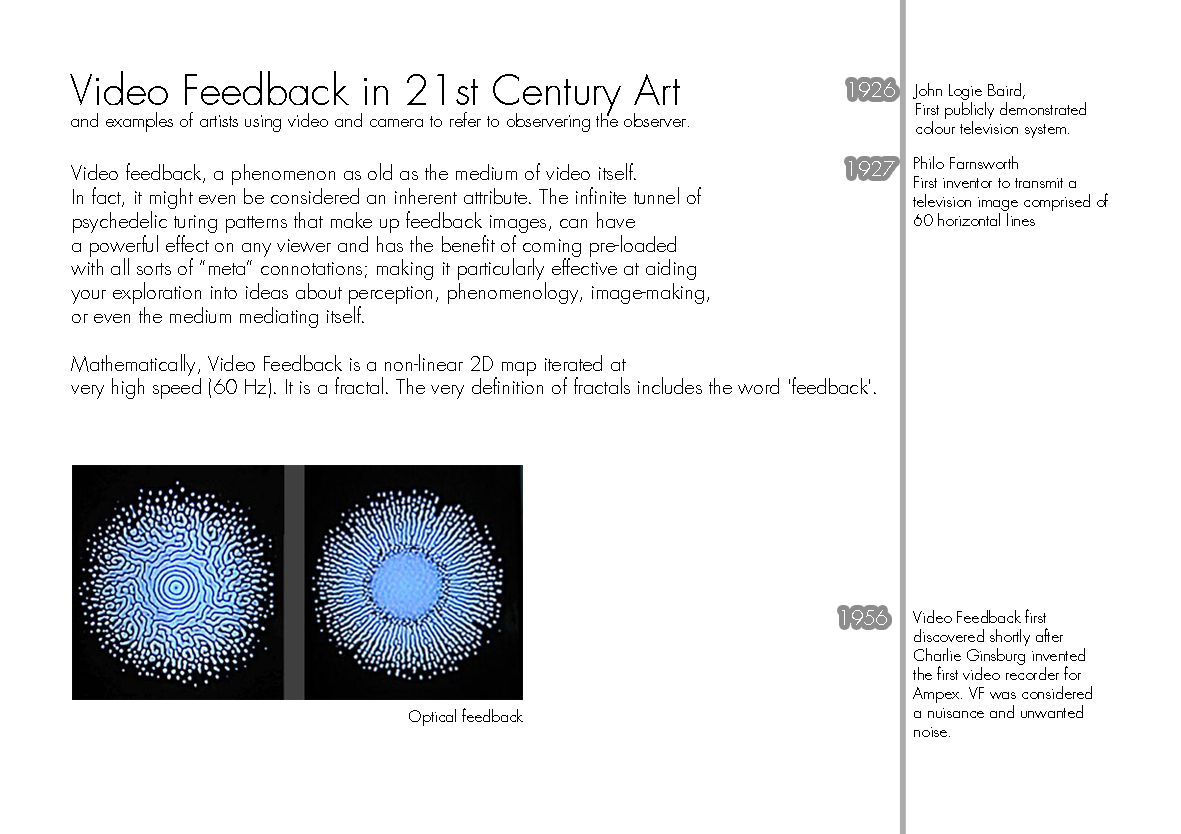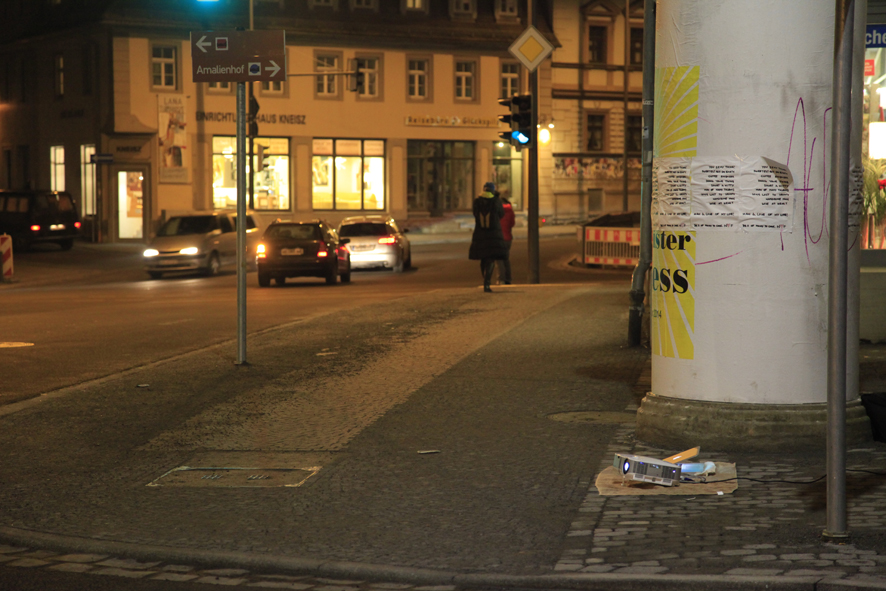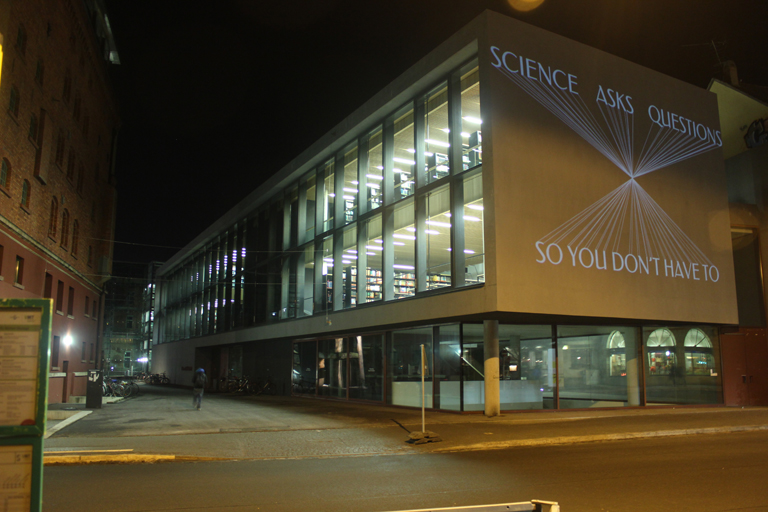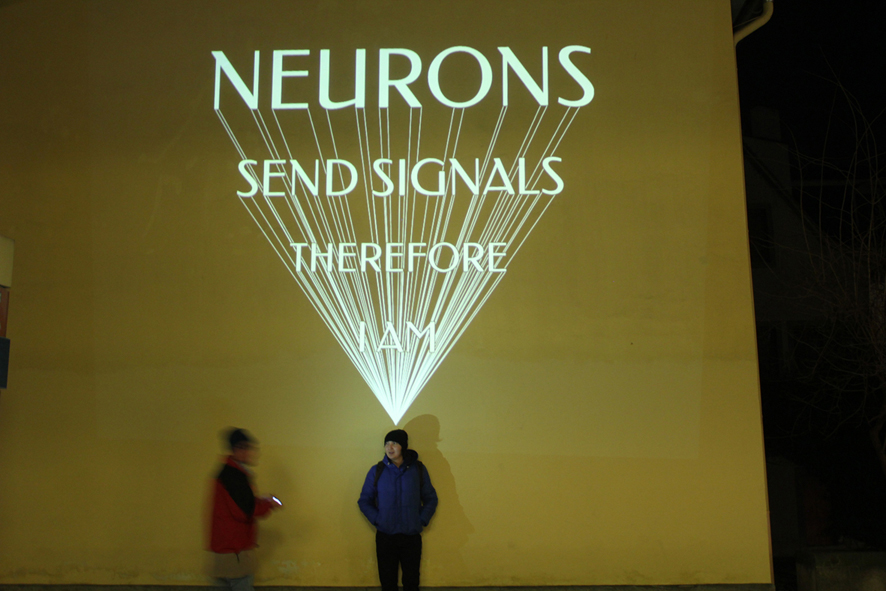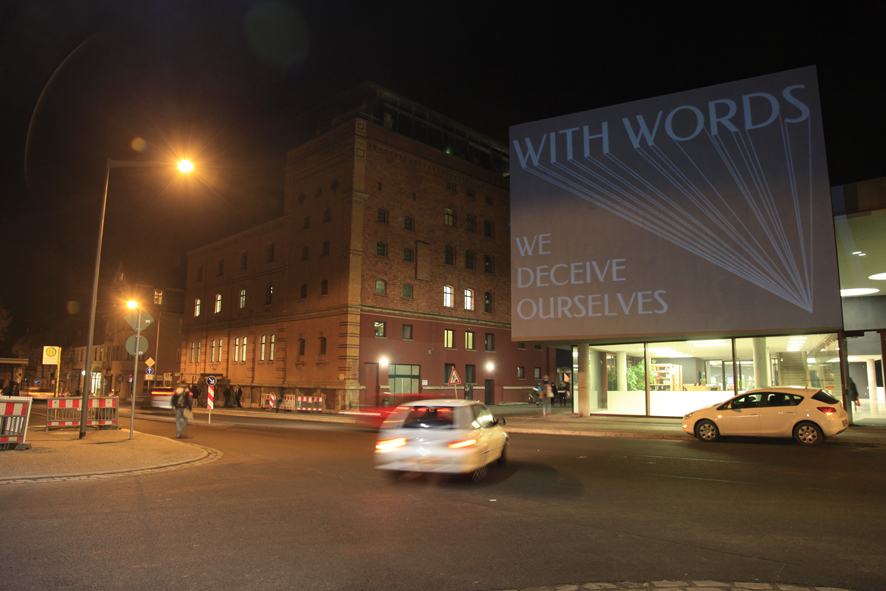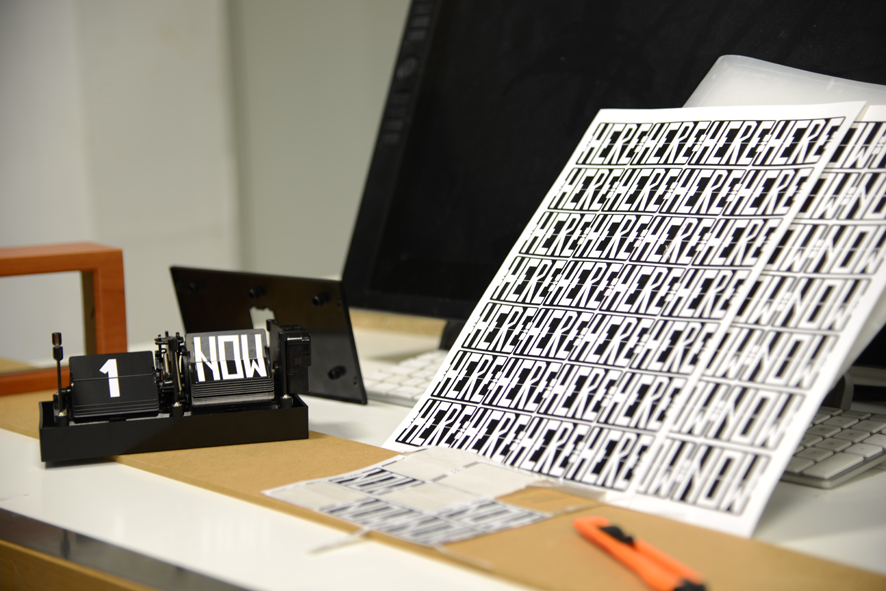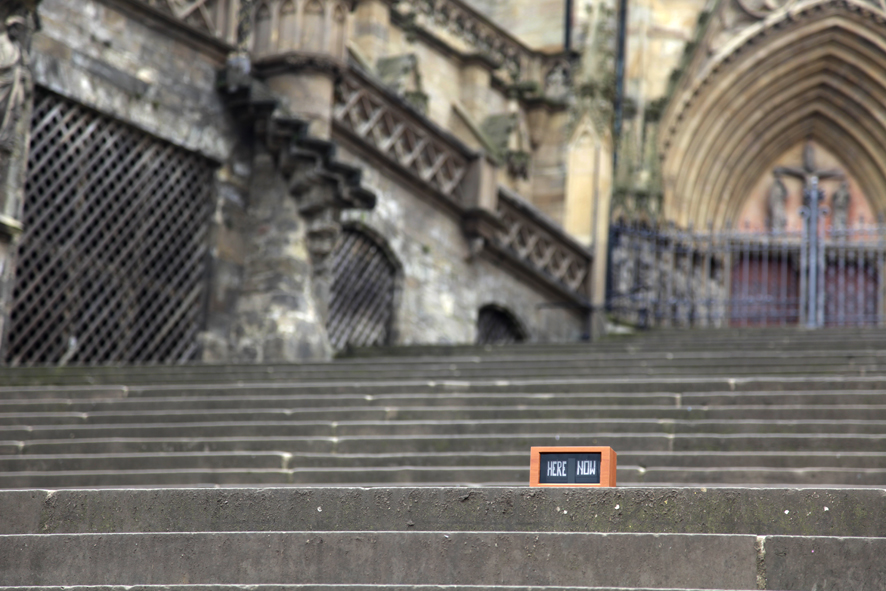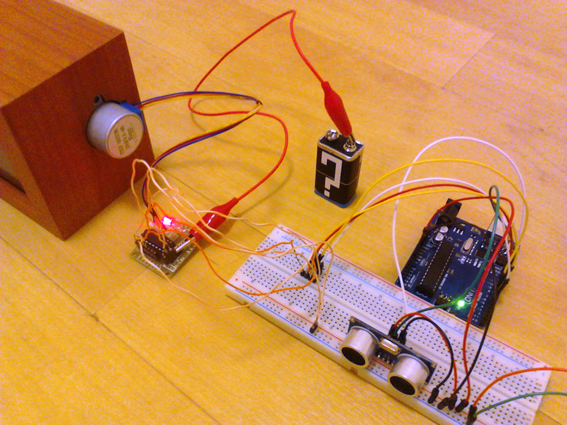m (→Mind the Gap) |
m (→Mind the Gap) |
||
| Line 101: | Line 101: | ||
Next hack, to increase the speed of the clock, change the text, and use a proximity sensor to speed up or slow down the flipping text. | Next hack, to increase the speed of the clock, change the text, and use a proximity sensor to speed up or slow down the flipping text. | ||
[[File: | [[File:Zen_speedwiki.jpg]] | ||
Revision as of 11:36, 29 May 2014
Mind the Gap
Proposing a series of actions to create scenarios where the urban space is transformed into a mindful space. Taking advice from cognitive psychology and some of it's recent 'mindfulness' training programs originally inspired by other Eastern meditative and contemplative practises, I try to bring different actions or happening to the urban space which facilitate the individuals need for mental calmness and awareness in an every busy and over stimulated environment. Stepping out of linear time and into the often overlooked present space of mind.
The first action taken: To take the London Underground Announcement recording 'Mind the gap' from 1969 and play it, out of context, in the streets of Weimar.
When the phrase is out of context (not meaning between the platform and the station) any other, new meaning/s can be attributed to it.
My own reading of this iconic phrase out of context: Is that it asks us to pay attention to the gap BETWEEN thoughts. A way of meditation. The gap here being the space of awareness between mental activity, which, this space of awareness is always there, present, when there is thought and when there is no thought.
The phrase also reminds me of Aldous Huxley's last novel 'Island' 1962 where a Utopian, social experiment functions on an island called Pala. There, the community have trained Parrots to say 'Attention. Here and now, boys, here and now', a method of helping the people stay in the present moment. - http://www.huxley.net/island/
Others could take this in other directions, the gap between education and work or cultural gaps. Or physical gaps, like the one between the two libraries in Weimar...
In 1968 Peter Lodge, a Sound Engineer, recorded himself saying the phrase, after the original actor demanded royalties.
I recorded the audio of Peter Lodge saying the Phrase from this site: https://audioboo.fm/boos/1111085-peter-lodge-mind-the-gap
After borrowing a portable Bose speaker from a friend (thank you very much Pia) I took to the street for an evening and a morning, for some test try outs.
First tests (shot on mobile phone)
Link below is to a playlist on youtube:
http://www.youtube.com/watch?v=mOA8Qm7o_T0&feature=share&list=PLYwnDsL-UvKUTlx2Lm2LdgPZNMNLHBcRR
Next tests will be with a real camera. and bluetooth connection to speaker not cable, So that I can be hidden and film with an improved vantage point.
Research into Weimar's history needed, perhaps the Audio track should also change...
The Second Action Taken: A questionnaire with a human figure outlined and the text 'Where is your Mind? Please Draw where your mind is' was given to students to complete.
The question itself is intentionally misleading, as there is not a location for the mind, because it is not a 'thing'. So to answer the question we usually reinterpret it as 'Where do you Experience your attention?', or 'Which part of your body are you most aware of?'. Musicians pointed toward the hands, many others included the heart, and the most common response was the head, or brain.
I would like to answer the Q: 'How can this information be make more interactive, more immersive? How can we let others feel or experience each others views on the relation between mind and body, mind and brain?
After scanning the responses, A sequence was made:
http://www.youtube.com/watch?v=he5zRWpFrio
The beginning of: 'Video Feedback history research and artists who have made reference to the observer observing observation'
First VF test: https://www.youtube.com/watch?v=L2Mxmw7r9iA
Second VF test: https://www.youtube.com/watch?v=3-_MeYX5_u0
Conclusion: So far I have not developed anything new or different in this field. More study and time would be required.
Moving towards Dogmas of today. Everyone walks around with a world view painting their experience of the world around them. Yet they are not often publicly expressed (except for some extremists from all viewpoints) due to having to defend them with logic or reason, of fear of being misunderstood or alienated.
Can an interactive setting in the urban space be conceived that allows such anonymous sharing and mixing of the many world-views held by people today, so that an overview of the similarities, contradictions and misunderstandings be laid bare in a democratic way?
Below is a Program I have written that takes some of sciences dogmas today and by clicking your mouse you can mix up the original sentences by changing at random the Subject, descriptor and object, creating new dogmas, some that don't make compete grammatical sense. Yet.
'HTML code not displaying correctly.'
Text Projections in Weimar to voice statements and views which are purposely ironically teasing.
Video Documentation: http://www.youtube.com/watch?v=wYa2koj8jkA
Modifying a flip clock. Planting the text HERE NOW over some of the numbers. A time counting devise that is its own undoing. Normally used to chart linear time, it now has the enhancement of occasionally reminding the passer by to reclaim their mind, lost in their habitual stream of thoughts and internal monologues, and into the present moment.
Taking the mind reminder to different Urban space in Thuringia. Time is a psychological phenomena. We have a habit of thinking literarily, from A to B, the arrow of time. Here I try to challenge this notion of Linear time by hacking this time device to become more than it's makers original intention. The importance to be full present with ones mind today is often overlooked, especially when we perform automatic functions, like walking through a city or town. Here the time device contradicts its originally function, by inviting the observer to reclaim their mind from the limits of psychological time and to enter, even if only briefly, the present which is without time, and constantly here, now. As they Say tomorrow never comes.
Footage of various locations has been shot and will be uploaded after an edit.
Next hack, to increase the speed of the clock, change the text, and use a proximity sensor to speed up or slow down the flipping text.
